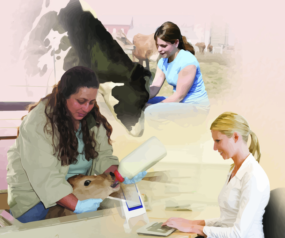New DuPont Acapela fungicide receives PMRA registration The Pesticide Management Regulatory Agency (PMRA) in Canada has granted approval for registration for DuPont Acapela fungicide. Acapela is a flexible fungicide with a new active ingredient that employs unique movement properties to fit the way producers farm. It controls key leaf diseases, allowing growers to achieve higher yields in cereals, corn, soybeans and pulse crops. "Acapela has unique movement properties that differentiate it from other fungicides," says Dave Kloppenburg, fungicide launch manager for DuPont. "It moves across the waxy layer of the leaf surface and systemically within leaf tissues."
Acapela contains the new active ingredient picoxystrobin, a novel Group-11 strobilurin fungicide that provides superior protection against key leaf diseases. DuPont trials over three years have shown that Acapela delivers both excellent disease control as well as significant yield gains.
Acapela has received approval for management of an impressive list of foliar diseases:
- Acapela has received approval for the suppression of white mould in soybeans, giving growers a tool for both foliar diseases and white mould in one spray. White mould is a major problem for soybean growers that can devastate yields.
- In cereal crops, Acapela protects the critical two to three upper leaves of the plant, including the flag leaf. Keeping the flag leaf healthy is critical for reaching higher yields. Acapela protects cereal crops from major disease such as leaf rust, powdery mildew, septoria leaf blotch and tan spot.
- In pulse crops such as lentils and field peas, Acapela controls major diseases such as mycosphaerella blight.
—From DuPont news release
Ontario cow has produced more milk than any other
Holstein Gillette E Smurf was recently named world champion for lifetime milk production with a record-breaking 216,893 kilograms.
Only four cows in the world have ever surpassed the 200,000-kg production mark, according to Louis Patenaude, one of four brothers who run La Ferme Gillette, about an hour southeast of Ottawa. Smurf is expected to appear in next year’s Guinness World Records.
Other cows average about 35 litres of milk a day, Smurf fills 50. (A litre of milk weighs one kilogram.)
“The amazing part is that she’s done it for a long, long period,” says Patenaude. Smurf is 15 years old.
And she’s not done yet, adds Patenaude, noting the still-healthy, “very happy” momma is awaiting the birth of her 11th calf next month. “She gives her milk but she’s not a cow that likes to be pampered,” he says.
The 750-kg animal is content with regular meals of corn, alfalfa and protein supplement and a roomy box stall into which Patenaude moved her to encourage output.
He credits her success to good care and good genes. Four generations of dams all lived to age 10 or much older, he says. Smurf, whose middle initial “E” stands for her sire Emperor, was named after a young farmworker called Murphy, who bought a share in her grandmother.
“If the Stanley Cup is the ultimate for hockey, for milk production the ultimate is breeding the world champion producer,” says Patenaude.
With 1,200 head of cattle — 450 are cows whose milk becomes cheese, yogurt, butter or a beverage — the fourth-generation family farm’s feats are legend-dairy.
In fact, they already have a “Stanley Cup,” Patenaude says. A bull by that name is so famous for his semen that he’s “back-ordered,” says the breeder.
—From the Toronto Star
Yoplait, Danone battle to keep Chobani yogourt out ofCanada
At high-traffic intersections across greater Toronto, commuters can see brightly hued billboards and transit ads promoting Chobani, the top-selling yogourt brand in the U.S., which began selling in Canada on a limited basis last November.
Those familiar with the Greek-style yogourt brand’s U.S. success might believe Chobani will enjoy the same triumph here, a market that consumes twice the amount of yogourt per capita than the U.S.
But if a coalition of existing Canadian dairy companies has anything to say about it, Chobani won’t be sold in Canada for long.
“It is very clear that our existing peers in the market are trying to cut us out,” says Nico Bevers, Chobani’s vice-president of international development.
The battle stretches beyond yogourt, industry critics say, because it could not be happening were it not underpinned by the densely woven regulatory fabric of this country’s supply-management system, which they argue stifles innovation, obstructs new competition and keeps prices artificially high.
“It is protectionism — rank, outrageous protectionism,” said Ian Lee, a professor of strategic management at the Sprott School of Management at Carleton University in Ottawa. “Farmers would be much better off in a competitive market.”
Chobani was keen to bring the yogourt to Canada, where Greek yogourt’s market share has tripled in the past year to account for about 6% of overall yogourt sales.
But shortly after Chobani began selling its black cherry, strawberry, peach, plain and pomegranate flavours in November at 65 Loblaw stores in greater Toronto and Hamilton, its growth plan hit a major snag.
The business interests behind competing yogourt brands such as Danone, Yoplait and Asana filed court applications to have Chobani’s one-year test market import permit from Canada’s Minister of International Trade struck down.
The legal actions coupled with recent changes from the provincial marketing body controlling the milk supply in Ontario suggests that if the Greek yogourt sensation does make it into Canada permanently, it would come after a hard-won fight fraught with regulatory and legal obstacles.
The federal case will be heard on April 24. PD
—From the National Post






